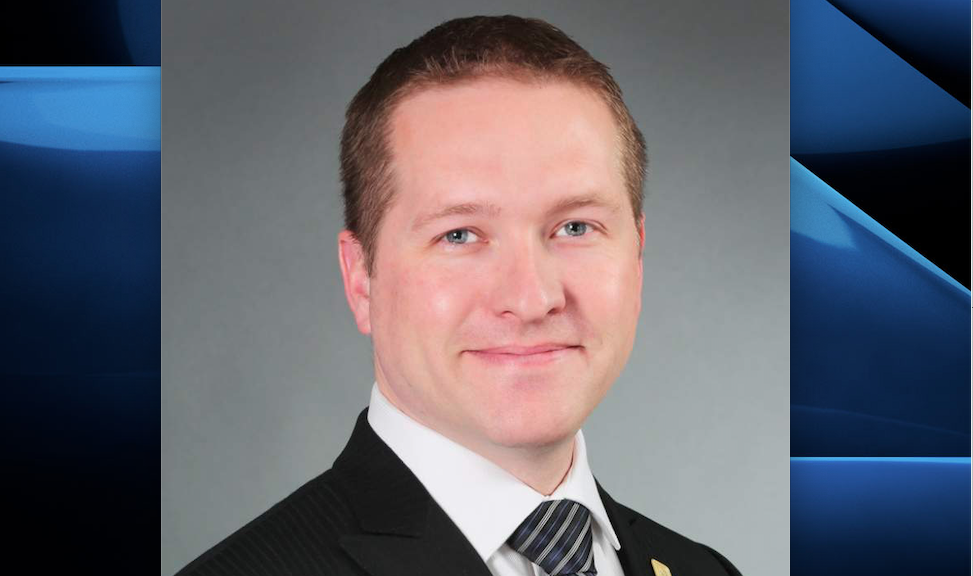London, Ont., mayoral contender and current deputy mayor Josh Morgan is weighing in on Premier Doug Ford’s plan to table legislation giving Ottawa and Toronto’s mayors more power.

Ford’s move, first reported by the Toronto Star and confirmed Wednesday by the premier himself, would see the powers of Ottawa and Toronto’s mayors increased so they would operate as a “strong mayor” system.
In an interview with Global News, Morgan said that he’s “all in” for municipalities having more influence over local decision making, but believes elected councils can decide how local powers should be distributed.
“There are certainly examples in the U.S. of mayors having extraordinary powers … but for the most part in our province, the mayor is one vote on council and can be outvoted by a majority member of council,” said Morgan.
“What I will say is we have no idea what is actually being proposed by the Ford government here, so I think we’re going to have to wait and see what the details are.”
Under a typical “strong mayor” system, executive power is centralized with the mayor who has control over department head appointments, oversees budgets, and sometimes is granted veto power.
Morgan noted that city councils already have the power to give additional authorities to the mayor. For example, he said, the mayor can already appoint the deputy mayor and the budget chair, to be ratified by council — powers which are granted to the mayor by council.
“There’s nothing stopping a local council from deciding how it wants to distribute its power across their members, including the mayor. Without knowing what is being proposed here, it’s very difficult to comment on,” Morgan said.
“I’m all for more local decision making, but I think that elected councils in the province of Ontario can decide how that should be distributed.”

Morgan is looking to succeed Mayor Ed Holder in the upcoming municipal election. Voters across the province will head to the polls Oct. 24.
Premier Ford said Wednesday that his government plans to have the system in place before the elections.

Get daily National news
“I just think that the mayor of Toronto or Ottawa, or any mayor, they’re accountable for everything but they have the same single vote as a single councillor,” Ford said.
Asked about mayoral veto power, Ford replied that more details would come later, but said that two-thirds of city councillors would be able to override a mayor’s veto.
- NDP to join Bloc in backing Liberals against non-confidence vote
- Ethics commissioner will not investigate Boissonnault over ‘Randy’ texts, says the matter is closed
- Macron and Trudeau will meet in Canada next week. What’s on the agenda?
- Via Rail CEO calls 10-hour train delay ‘unacceptable,’ says new evacuation plan in place
Municipal Affairs and Housing Minister Steve Clark said the province was “still consulting” on whether to expand such a system beyond Toronto and Ottawa to other urban centres.
Speaking with Global News, Joseph Lyons, assistant professor and director of the local government program at Western University, said the “strong mayor” system as it’s being described for Ottawa and Toronto would be a first in Canada.
“Nowhere in Canada do mayors have the same kind of ‘strong mayor’ powers as some mayors in the U.S. do. It seems like this is going to go beyond what we have elsewhere in Canada as well,” he said, referring to executive policy committees in place in Montreal, Toronto and Winnipeg.
“This was a decision made by the province without really consulting municipalities. From what I can read, there was some discussions about this, but there was no really formal consultation process which –there’s a (memorandum of understanding) between the province and municipalities and that’s technically how things are are supposed to work.”
The potential upheaval at Toronto and Ottawa city halls mirrors a controversial move Ford made in 2018, when he cut the size of Toronto city council in half before the last round of local elections from 47 council seats to 25, aligning them with federal ridings.
At the time, Ford, who previously served on Toronto’s council and lost a bid for the mayor’s office, argued the change would streamline council operations and save $25 million. Rob Ford, Doug’s brother, served as Toronto’s mayor from 2010 until 2014.
Toronto Mayor John Tory, who is seeking re-election, signalled his support for such a system on Wednesday, saying he had previously said he was in favour of a “strong mayor” structure as well.
“Having this enshrined in legislation does allow the voters to know a little bit more clarity in terms what kind of powers they can expect the person holding the title of mayor to actually possess. If it was council doing it, it would be after the election,” Lyons said.
“A lot of people think mayors have more power than they actually do have. So giving them more powers would be, maybe, a better reflection of people’s perceptions.
“From the U.S., too, we do see that voter turnout rates are higher in strong mayor systems, for example, because people know there’s more at stake when they’re casting their ballot for the mayor.”
The legislation involving the “strong mayor” powers is expected to be tabled in a matter of weeks. The Ontario legislature is currently on summer break, but will return for a rare summer sitting starting Aug. 8.
One source told Global News that the scope of the legislation was still being finalized and that no formal cabinet talks had taken place.
The Opposition New Democrats questioned the timing of such a move and said putting in such a system was the “wrong priority.”
— with files from The Canadian Press, and Isaac Callan and Colin D’Mello of Global News












Comments